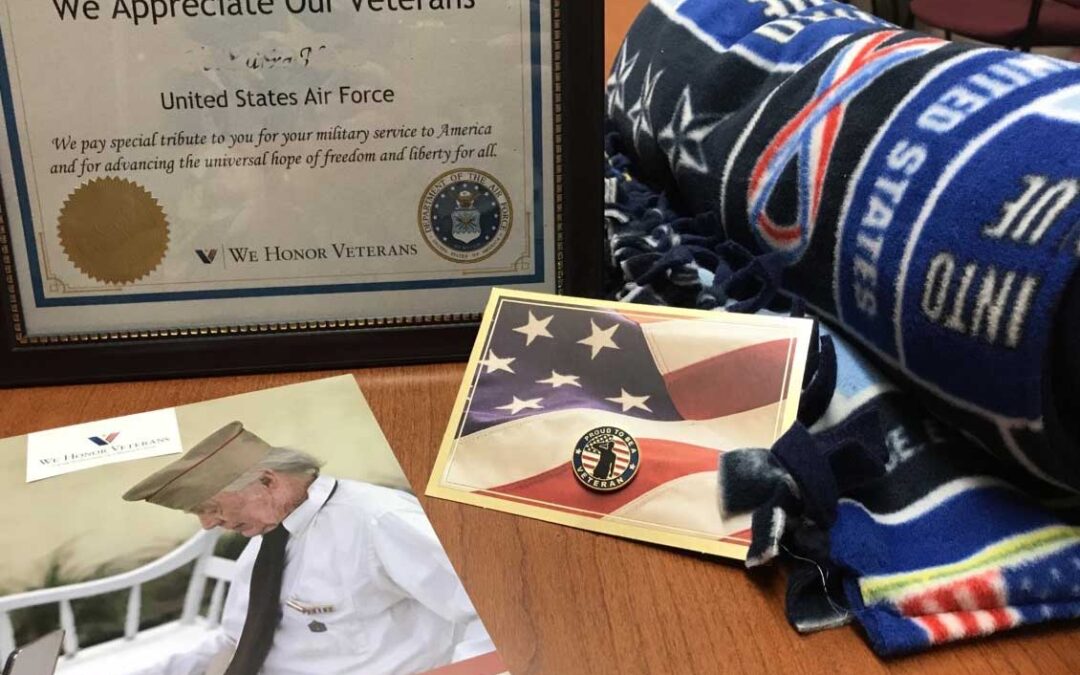The stories come in small pieces, coaxed out gently when I ask a new resident when and where they served in the military.
“How did you pick the Air Force?” I ask, careful not to tread too quickly into uncomfortable territory. He says he knew he would be drafted into Vietnam, so he decided to enlist. He tells me about being on the same base where the first two men who were killed in the war were stationed. He saw their names on the traveling Vietnam wall.
After the war, he bought a GTO from another GI who was about to get married. He remembers racing it up and down the highways around Arizona at high speeds without a seatbelt because “after having rockets fired at you during a war, you crave an adrenaline rush to make you feel alive.”
I think back to what I was doing at 18, and none of it involved having rockets fired at me and putting my life on the line each day. I want to ask more questions, but I’ve learned through the years not everyone wants to share stories about their military service.
The first time I realized this was at my first job after college. My boss had taken me out for lunch after a meeting and it came up that he had served in Vietnam. I asked him if he had been drafted and he told me that he had enlisted and served as a helicopter gunner. He started to talk about it, but suddenly changed the topic. “It’s not a good story to share,” he said and we left it at that.
The next time I realized this was in my grandparents’ dusty attic in Des Moines. I was looking for treasures and discovered a scrapbook filled with letters and photos from my grandpa’s time as a Navy officer during World War II. He never talked about his service, but I thought it would be great to look through the scrapbook with him. I lowered it down through the attic opening to show him what I had found. He just shook his head and asked me to put it back. I did.
Toward the end of his life, I snuck back into the attic, rescued the book, and gave it to my mom for safekeeping. Now I have it. It’s filled with handwritten letters my grandparents sent each other during his deployment overseas, most of them from my grandma, but a few from him, written in beautiful cursive, sharing what they could about their daily lives and how my mother, who was three at the time, was doing.
I’m grateful to have this piece of family history, but there’s one letter there that haunts me. It’s a reply to my grandfather’s letter to the family of one of his sailors who had died, thanking him for his kind words about their son. I’m sure that letter is just one of many reasons he asked me to put the scrapbook back in the attic. What he did or saw during his time in the war is a story I’ll never hear.
But it’s still important to ask, and more importantly, listen, if the men and women who have served our country want to share their stories with us. Listening is the hardest part, and sometimes it’s uncomfortable to see the tears or emotions when they talk about their service. But it’s also a privilege to be in the room when they share them. Some of the best days I’ve had at work involve honoring veterans at the end of their lives, watching families laugh about favorite memories, passing around old photos of these impossibly young men and women in uniform, and seeing the pride in their eyes as we thank them for their service one last time.

